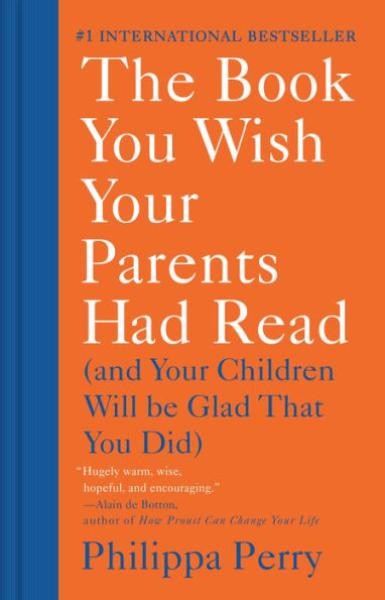Description
Instant #1 Sunday Times Bestseller
Every parent wants their child to be happy and every parent wants to avoid screwing them up (the way their parents did!). But how do you do that?
In this absorbing, clever, and warm book, renowned psychotherapist Philippa Perry tells us what really matters and what behavior it is important to avoid--the vital dos and don'ts of parenting.
Her approach begins with parents themselves and their own psychological make-up and history--and how that in turn influences one's parenting.
Instead of mapping out the perfect plan, Perry offers a big-picture look at the elements that lead to good parent-child relationships. This refreshing judgement-free book will help you to:
- Understand how your own upbringing may affect your parenting
- Accept that you will make mistakes and learn what you can do about them
- Break negative cycles and patterns
- Handle your own and child's feelings
- Understand what different behaviors communicate
Full of sage and sane advice, The Book You Wish Your Parents Had Read is one every parent will want to read and every child will wish their parents had.
A PAMELA DORMAN BOOKS/VIKING LIFE TITLE
"First published in hardcover in Great Britain by Penguin Life ... in 2019"--Copyright page.
Praise for The Book You Wish Your Parents Had Read:
"[H]onest, warm, and judgment-free. . . this is essential for all parents, from those first expecting to empty nesters. It's never too early or too late to improve the relationship with your children, and, as the title suggests, they'll be glad you did."
--Booklist (starred review)
"Healing from, and learning not to perpetuate, difficult upbringings is the linchpin of this practical, self-care-centered parenting guide . . . Perry's kind but professional tone results in a helpful manual that will appeal to new parents who want an expert on board as they take the time to be reflective in their parenting."
--Publishers Weekly
"Accessible, compassionate."
--Bookpage
It is hard to read fast, not just because Perry's text is punctuated by exercises...but because it prompts so many realisations, or insights, or clearly names things that have until now existed just beyond one's awareness. And it provides tools, straightforward and manageable if not always easy, that can be implemented at once. I am grateful for it.
--The Guardian (UK)
Product Details
- Penguin Publishing Group Brand
- Feb 4, 2020 Pub Date:
- 1984879553 ISBN-10:
- 9781984879554 ISBN-13:
- 320 Pages
- 8 in * 5.4 in * 1 in Dimensions:
- 1 lb Weight:




